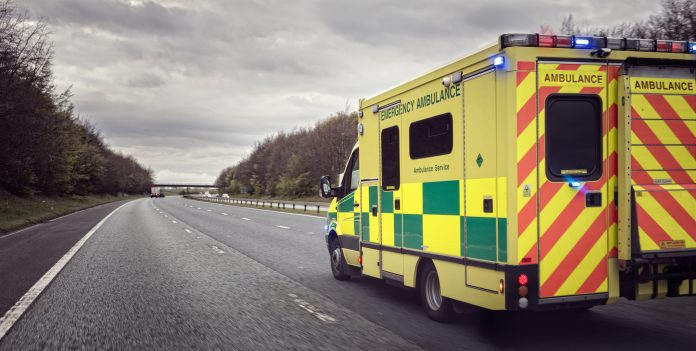Anjub Ali, Senior Construction Specialist at NHS Shared Business Services (NHS SBS), explains revolutionising NHS transport infrastructure for a sustainable future in the drive towards net zero
The sustainability dial has shifted from ‘nice to have’ to ‘essential’, and the NHS, the first national health system in the world to commit to decarbonising its operations, has set an ambitious course of action to lower its carbon output to reach net zero by 2040.
Regarding travel and transport, having the right infrastructure in place will be integral to the NHS’s ability to reduce emissions from its fleet of vehicles, business travel and staff commutes.
Travel and transport make up 14% of NHS emissions
The NHS accounts for 4% of the nation’s total carbon footprint. According to NHS England, emissions from travel and transport account for 14% of its overall carbon footprint. This includes 4% for business travel and fleet transport, 5% for patient travel, 4% for staff commutes and 1% for visitor travel.
The NHS has more than 20,000 vehicles, the second largest fleet in the country, travelling over 460 million miles annually. It calculates that its vehicles, combined with the impact of commissioned services and staff travel, directly contribute to the 36,000 deaths that occur every year from air pollution.
Transition to net zero NHS travel and transport expected to yield benefits exceeding £270 million
In the recently published Net Zero Travel and Transport Strategy, the NHS has laid out its road map to reach net zero:
- By 2026, sustainable travel strategies will be developed and incorporated into trust and integrated care board green plans.
- From 2027, all new vehicles owned and leased by the NHS will be zero emission (excluding ambulances).
- From 2030, all new ambulances will be zero-emission vehicles.
- By 2033, staff travel emissions will be reduced by 50% through shifts to more sustainable forms of travel and the electrification of personal vehicles.
- By 2035, all vehicles owned and leased by the NHS will be zero-emission vehicles (excluding ambulances), and all non-emergency patient transport services will be undertaken in zero-emission vehicles.
- In 2040, the full fleet will be decarbonised. All owned, leased and commissioned vehicles will be zero emission.
The NHS estimates that the benefits to society from implementing the commitments associated with reduced carbon emissions, reduced pollution and reduced traffic amount to over £270 million each year, with over £59 million saved annually, which can be re-invested into patient care.
Transitioning fleets to zero-emission vehicles, encouraging employees towards active forms of travel like cycling, walking and car sharing and looking to low-carbon logistics and transportation of goods using pedal power are some of the interventions the NHS is putting in place to meet its sustainable transport and travel objectives.
Transport infrastructure critical to delivering on carbon reduction goals
In its ‘Net Zero Travel and Transport Strategy’, the NHS has said that come 2033, staff travel emissions will be reduced by 50% through shifts to more sustainable forms of travel and electrification of personal vehicles. From 2030, all new ambulances will be zero-emission vehicles. From 2040, all owned, leased and commissioned vehicles will be zero emission.
However, to get there, NHS Trusts must have the necessary transport infrastructure in place – from low-carbon logistics to electric vehicle charging solutions through to grid upgrades.
Bicycles, for instance, will need cycle parking facilities built with climate-friendly materials. Electric vehicles (and e-bikes) will require power charging infrastructure and the means to tap into renewable energy like solar to store and generate the power to fuel them.
Sustainable Transport and Infrastructure framework
To enable Trusts and Integrated Care Systems to acquire the building blocks to get their net zero plans off the ground cost-effectively, at pace and compliantly, NHS Shared Business Services has, in collaboration with NHS Sustainability, Estates and Procurement colleagues, designed the Sustainable Transport and Infrastructure framework agreement.
Services the NHS can access via it include the design and building of car parks incorporating solar panels to generate and store electricity, sustainable transport consultancy services, bike hire and repair, low carbon logistics, and electric vehicle charging solutions, to name a few.
Aligned to fulfil the common themes which have emerged from NHS Trusts’ Green travel plans, it includes a range of suppliers providing sustainable transport and infrastructure-related services to support the NHS on its journey to net zero and help keep it on the 2040 track when it hopes to achieve a full fleet decarbonised and all business travel being zero emission.











